Botswana is possibly the perfect case study for low impact tourism. Its game parks, nature reserves, and wildlife management programs make up a massive 34% of its total land area.
The country is also home to numerous critical conservation initiatives who rely largely on donations to support their important work. In this article, we list 10 of the leading Botswana conservation initiatives you can help support:
Elephants for Africa
Working towards human-wildlife coexistence, Elephants for Africa conducts research to conserve the African elephant through understanding the ecological and social requirements of male African elephants, and put these into the context of human-wildlife conflict.
Elephants are running out of time and space. Ivory poaching is a constant threat, and expanding human populations sees wild elephants increasingly coming into conflict with human settlements and agricultural land.
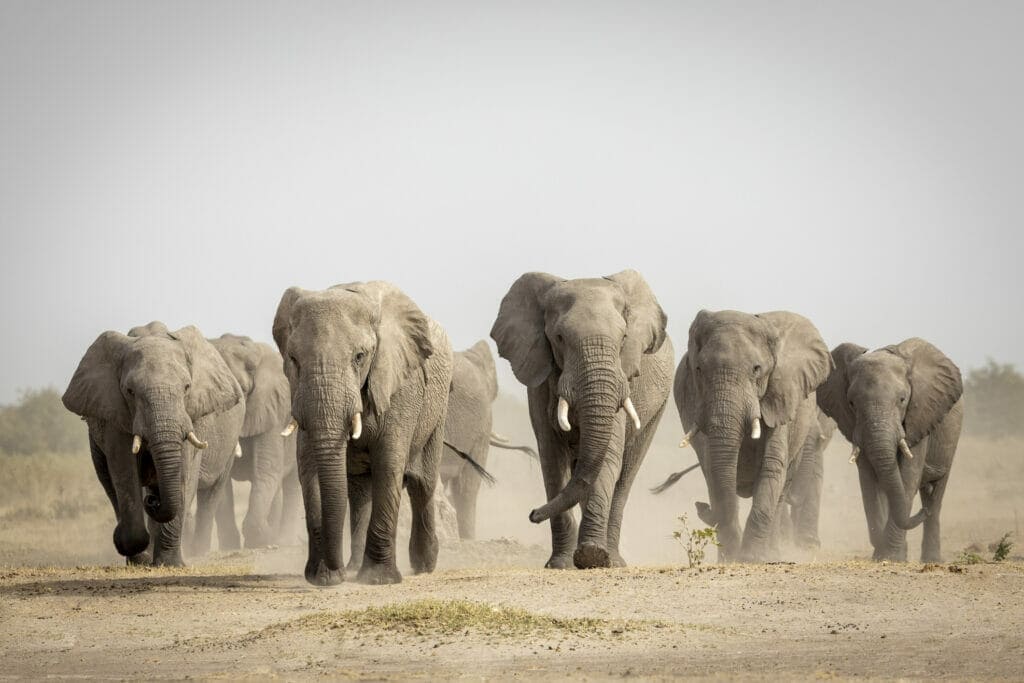
By understanding the daily needs of elephants and humans and finding local solutions for local problems, Elephants for Africa strives to protect, conserve, and educate to ensure a future for wild populations of African elephants, and move toward humans and wildlife coexisting.
One of their aims is to empower and inspire the conservation leaders of the future, definitely a cause worth getting behind. In addition to making a straight donation, you can also shop for merchandise and art on their website.
Mokolodi Wildlife Foundation
The Mokolodi Wildlife Foundation led to the establishment of the Mokolodi Nature Reserve in 1994 on 3,700 hectares of donated bushveld land that was previously used for cattle farming.
The reserve is now home to a wide variety of animals and plants that are endemic to south-eastern Botswana, some of which are extremely rare or endangered. The Reserve employs around 90 people, about 75 of which are from neighboring countries.

Their Education Center accommodates more than 9,000 school children per year in its environmental education programmes.
To sustain the conservation efforts of the Nature Reserve and the educational pursuits of the Mokolodi Education Center, Mokolodi offers fee-based tourism activities (including game drives, rhino tracking, and conferencing as well as great accommodation).

The Foundation offers a Volunteer Programme and you can even adopt a rhino.
Botswana Predator Conservation Trust
Botswana Predator Conservation aims to promote the sustainability of threatened and endangered carnivore species and their habitats in Botswana through education, applied conservation research, and effective management.
They work to build capacity among local Batswana, through training and mentoring, to ensure there are skilled conservationists and wildlife custodians for the future.

The goal of the Botswana Predator Conservation Trust is to preserve Africa’s large carnivore guild of African wild dog, cheetah, leopard, and spotted hyena.
Their research focuses on the behaviour and ecology of threatened and endangered large carnivore species, the effect of human development on wildlife species and their habitats, and the impact of management and development policies and activities related to these areas.
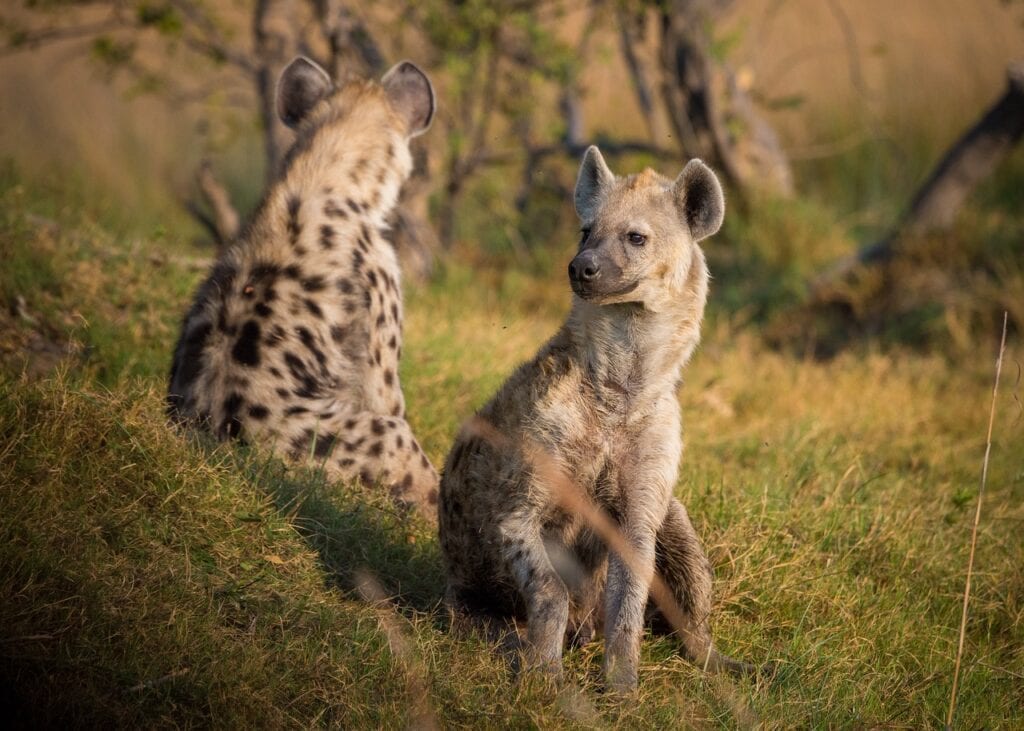
Cheetah Conservation Botswana
Botswana hosts the world’s largest population of cheetahs, with an estimated population of around 1,700 individuals. This accounts for approximately 25% of the world’s remaining wild cheetahs.
Cheetah Conservation Botswana (CCB) aims to preserve the nation’s cheetah population through scientific research, outreach with farmers, community development, and conservation education, working with rural communities to promote coexistence with Botswana’s rich diversity of carnivore species.

With a focus on empowering locals to mitigate human-wildlife conflicts and a passion for practical and effective programmes, CCB has been able to help thousands in Botswana live peacefully with wildlife. You can help by donating to their cause.
Kalahari Conservation Society
The Kalahari Conservation Society (KCS) is an environmental non-profit, non-governmental organization dedicated to the conservation of Botswana’s environment. KCS believes in the sustainable utilization of natural resources, particularly where it benefits local communities.
The society bases its decisions on factual and scientific evidence and undertakes and funds various research projects.

Drawing on the findings of its research, KCS lobbies to ensure that the promulgation of national policy and development in general take into account environmental considerations.
KCS actively promotes knowledge of Botswana’s wildlife resources through environmental education, which is directed to schools and the general public. In addition, the society plays a leading role in transboundary parks initiatives.
BirdLife Botswana
BirdLife Botswana (BLB) has been a partner to BirdLife International since 2000.
Its work is organized into four key areas – saving species (prevent extinctions and keep common birds common), conserving sites and habitats (identify, protect, restore and monitor habitats), encouraging ecological sustainability (demonstrate and advocate nature’s values), and promoting policies that support sustainability.
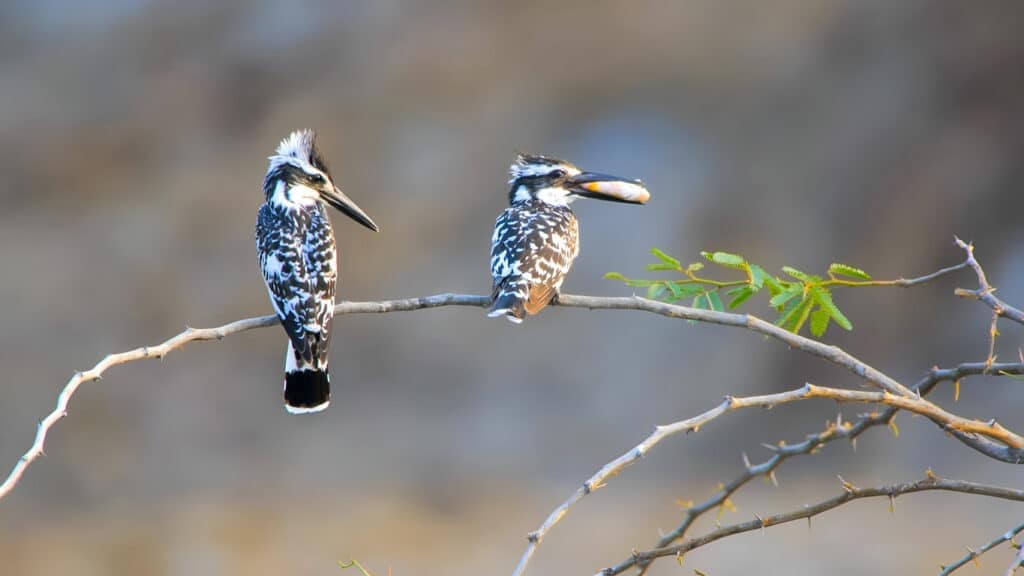
BLB is also heavily involved in education and outreach.
Rhino Conservation Botswana
Over the past two decades Rhino Conservation Botswana (RCB) has been working with its partners, including the governments of Botswana, South Africa, and Zimbabwe, to help reintroduce black and white rhinos to Botswana.
Over the next few years they aim to build populations of rhinos living wild and free in the Okavango Delta until they are of international importance.
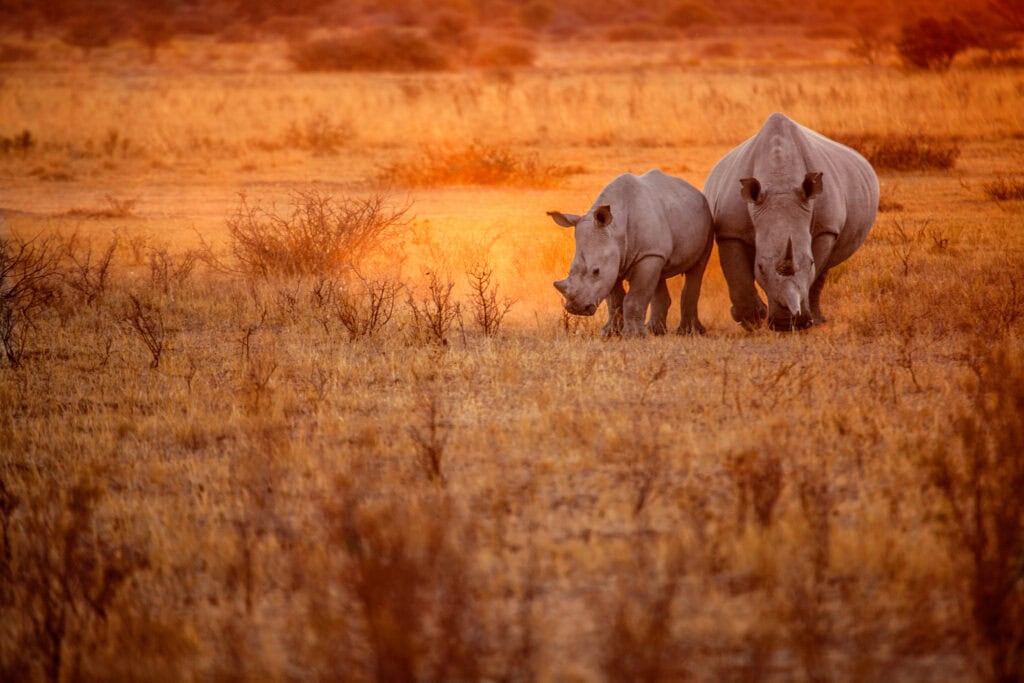
Building on a strong foundation of science, partnerships, and field capability, RCB is dedicated to monitoring and protecting wild black and white rhino in Botswana, contributing significantly to the survival of these iconic African species. You can contribute to their important work here.
Botswana Wildlife Producers Association
The Botswana Wildlife Producers Association (BWPA) is an association of stakeholders with the conservation and management of Botswana’s wildlife as its focus, including sustainable utilization of natural resources through a process of responsible and ethical management options.

Their code of conduct embraces the disciplined, ethical, and legislated means to participate in, cooperate with, and benefit from sustainable and controlled hunting activities in Botswana. The BWPA works with farmers and communities to sustainably manage and utilize wildlife resources.
Botswana Community & Conservation Initiative
The vision of the BCCI is to provide for regional conservation and support for rural communities to develop sustainable land-use practices that promote conservation-based economic opportunities, facilitate landscape-scale wildlife movements, and provide for climate change resilience.

The initiative works to increase social wellbeing through diversified and inclusive community-based enterprises and a community conservation fund that supports healthy communities, landscapes, wildlife, and ecosystem services.
The Ecoexist Project
The Ecoexist Project seeks to reduce conflict and foster coexistence between elephants and people. In areas of heightened competition for access to water, food, and space, they find and facilitate solutions that work for both species.
They seek to connect science with practice and gather social, ecological, and economic data to analyze the causes and consequences of human-elephant conflicts.
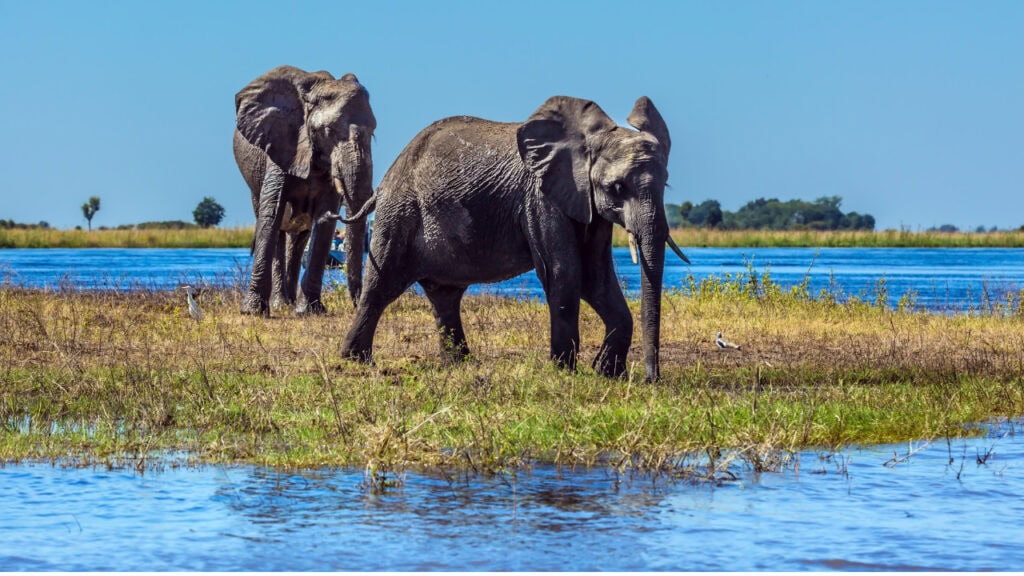
They empower farmers with practical, affordable, and effective tools to deter crop-raiding and reduce conflict with elephants. In the long term, they collaborate with local, national and international groups to create an enabling environment for a range of policies and programmes that tackle the root causes of conflict.
Author: Devryn Panaino
Published: 18 August 2023